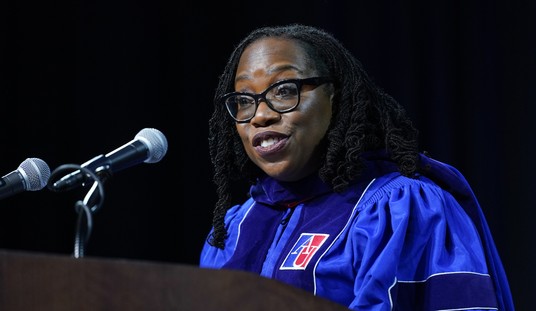There’s a lot of bad going on in Ferguson, Missouri right now. Let me start with the shooting, several times over, by police of an unarmed young man. It is not in dispute that he was unarmed, though we will find out more during an investigation about whether there was some kind of assault or aggression on Michael Brown’s part. Then, there were perfectly warranted and within-the-purview-of-American-freedom protests, marked by the opportunism of the Rev. Al Sharpton, of course, but not to be dismissed because of it. Then there was rioting and looting, resulting in the burning of at least one convenience store. Then there was an extremely heavy-handed police response to said looting, which I of course concede must be dealt with, featuring riot gear, armored vehicles. And now, the arrest of several journalists.
I have written about the militarization of police before and police abuses and mistaken shootings and SWAT raids, and recommended to you both the reporting and the book of Radley Balko, who covers this issue. The state is big and powerful and violent and can hurt you, whether it’s the FDA, the state prosecutor, or the local police force.
Now, it’s not that the journalists in question are super-citizens who have more rights than the rest of us (though, certainly, the coverage of them will suggest it). They are canaries in a coalmine. If national journalists are arrested at a McDonald’s in Ferguson for what can only be described (and has yet to be described by police, mind you) as some sort of reach of an infraction, how are the regular citizens in this now militarized zone faring?
I understand the need to address looting and rioting, and quickly. I understand that law enforcement officers put their lives on the line to do that. But perhaps when a police force, which must work with local communities to be successful, has already shot an unarmed person thereby inflaming the emotions of said community, they should approach the policing in the immediate aftermath with an overabundance of caution. Using rioting as an excuse for police abuses is just as problematic as using the original shooting as an excuse for looting.
And, here’s the thing. We ask more of law enforcement in a free society and we should. We don’t accept that everyone in a community must be under the gun because some of them committed crimes. Or, that journalists should be arrested while trying to cover that community. We have a system that allows for going after the accused while respecting everyone’s rights, scribe or no. Stipulated that we ask cops to handle challenging, dangerous, delicate situations like riot and looting in Ferguson or manhunts in Boston. Because this is America, we ask them to do it while preserving the rights of innocent bystanders and even those who may be engaging in crime.
We ask more of police in a free society than creating militarized zones out of tough situations. This requires more bravery, more risk, more patience than being a cop in a society where cops can do what they like when they like with impunity. As a result, many Americans have great respect, sometimes reverence, for law enforcement. But when an official response, even to a tough situation, looks like martial law with federally issued no-fly zones, the state isn’t honoring its part of agreement in a free society. We should be willing to demand that they do, even in the face of immense danger. The deep respect many Americans hold for law enforcement should be a function of a free society asking more from those men and women and getting it, not a reason to excuse them when they give us far less.








Join the conversation as a VIP Member